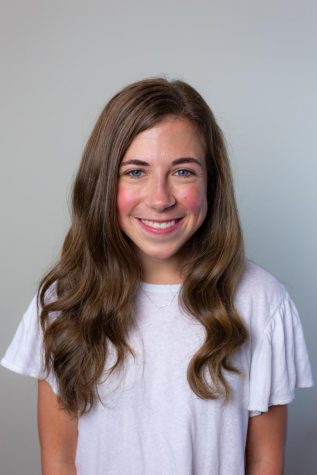In fall 2017, seven App State students wrote a letter to Chancellor Sheri Everts in response to an act on campus by a white nationalist group.
The letter closed by saying “In lieu of #NoHateAppState, we want to see Chancellor Everts, Appalachian State University Administration, and The Board of Trustees take active steps towards combating injustice and inequity.”
The letter listed numerous demands of the Chancellor, Administration and Board of Trustees, such as publicly denouncing white nationalists and hiring staff members of color and those who are bilingual.
“The letter to Chancellor Everts was an action of response,” Diana Feria Mejia, senior communication studies major and one of the seven original authors of the letter, wrote in an email. “It was a response to the lack of action by Chancellor Everts and the administration to yearly antagonization directed towards marginalized communities.”
In response to the letter, Everts sent an email directly to the seven students, which said that many of their demands were already being worked on, citing diversity-centric job openings and initiatives already in place.
Just over a year later, on Sept. 30, racist graffiti of a Nazi flag was found in a free expression tunnel.
“Racist and anti-semitic spray painting in the tunnels and across campus is something that happens every year,” Ariel Green, App State alumna and author of the original letter to Everts, said in an email.
“Every year our chancellor puts out a statement that fails to address how she actually plans to protect the victims of hate speech.”
Danielle Carter, director of Multicultural Student Development, said when hateful acts occur on campus, herself and the associate director of MSD plan and bring in others to strategize about remaining concerns.
In addition, MSD is working on plans for a diversity crisis team.
“So when things like this happen, there’s already a group of people in place, ready to respond,” Carter said. “I think that would be the most effective way to address it in the moment and then (asking) what does MSD do after that?”
Carter stressed all of the resources available to marginalized students at App State like support groups and other programs that create conversation surrounding issues with diversity.
“I feel like people don’t understand or know all of the things the university is doing to create an environment that is safe and allowing students to thrive and get an education,” Carter said.
Carter also said she personally ensures that marginalized students are succeeding at App State and regularly checks with the students’ professors.
“If you aren’t doing what you’re supposed to, we need to talk about that. You aren’t going to slip through the cracks,” Carter said.
MSD has a number of staff members who act and aim to encourage diversity at App State by giving students who may feel marginalized resources for living in an unfamiliar environment.
“I think our office is proactive,” Carter said. “When stuff happens in the residence halls, we have someone that goes there. When stuff happens on campus, we have a team that goes out. Even Student Affairs overall has a diversity and inclusion team.”
Story by Jackie Park


